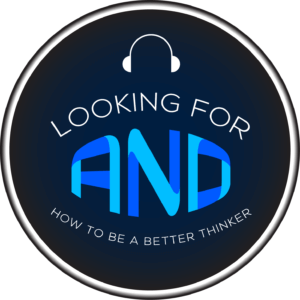In Everything Bad is Good for You, author Steven Johnson offers some incredibly compelling arguments for why pop culture isn’t as bad for us as we may have thought. Johnson puts forward some interesting reasoning to consider when we talk about the negative effects of video games, movies and TV. In fact, he asks how we might think if TV were invented before books. Would we say that books were too linear and didn’t challenge us to interpret non-verbal communication and other subtleties of human interactions? In that spirit, I offer you several alternatives to reading books in the form of my top five favorite podcasts.
This list is not any particular order and each offers something a little different for those who like to learn and improve.
- Science Friday: This NPR stalwart is my go-to podcast for long walks. It is broken into two one-hour segments and host Ira Flatow shares his enthusiasm for the latest discoveries in space, under water or in our heads.
- Smart People Podcast: I have had the good fortune of meeting host Chris Stemp over coffee and picking his brain over the phone. Chris and his co-founder (Jon Rojas) had the bright idea of interviewing “smart people” several years ago and in a short time they found their podcast listed in the “New and Noteworthy” section of podcasts by Apple. In this 40-45 minute bi-weekly podcast, you will learn about sleep, habits of successful people, creativity, parenting and more.
- The TalentGrow Show: This podcast is hosted by my friend and colleague, Halelly Azulay. Halelly has an astute eye for anything that can help leaders and professionals grow. Her curiosity helps bring some very talented and wise people to you for a perfectly-timed 30-35 minute podcast. Halelly and I talk resilience in this episode.
- Stuff You Should Know: Ok, “should” might not be the best word for the title of this podcast but I better you’re interested! This podcast will entertain and educate you, at the same time. Hosts, Chuck Bryant and Josh Clark, sound like two best friends talking about interesting stuff. Most podcasts are in the 45-55 minute range and cover subjects like how droughts work, when the Nazis invaded Florida and how street gangs work. Their kid-like curiosity will keep you coming back for more.
- Freakonomics: Co-author of several books of the same name, Stephen Dubner, hosts this weekly show that is guaranteed to help you think differently using an economist’s approach to subjects like how more safety features make us less safe, how failure is your friend and (my favorite) the economics of sleep. This is a must-subscribe for fans of the Freakonomics franchise.



